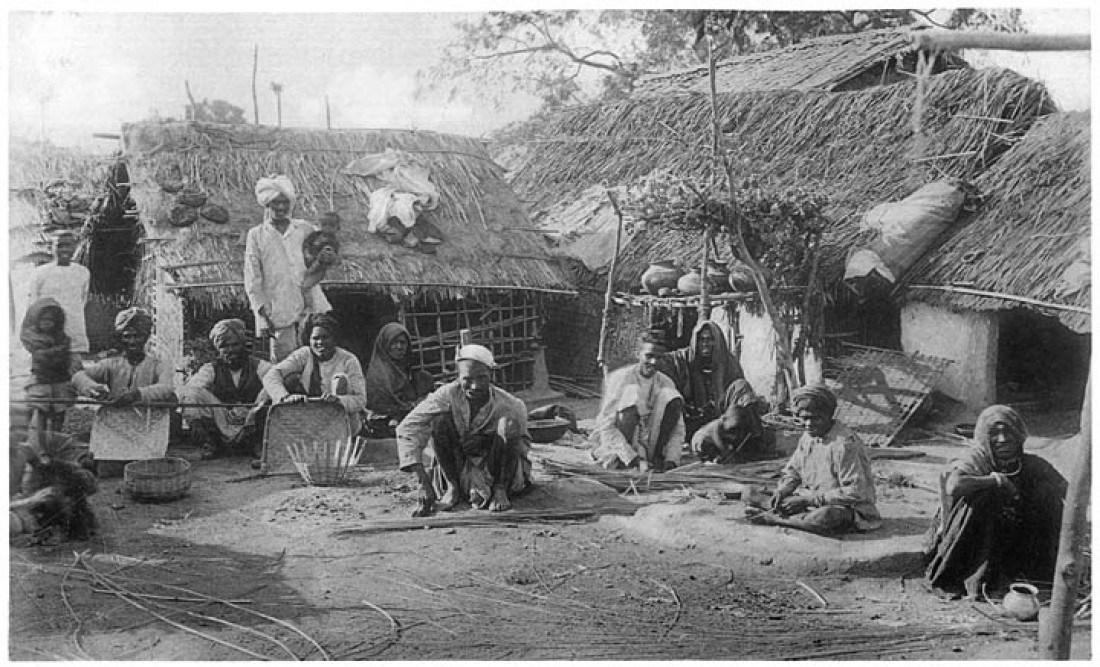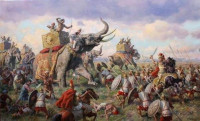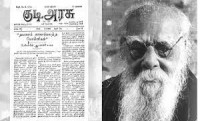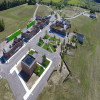History of Chamar Caste ( CHAMAR CASTE HISTORY) How did the word Chamar originate?

The Chamars are a Dalit community found in the Indian subcontinent. Meaning of Dalit. Those who have been suppressed, oppressed, exploited or whose rights have been taken away. Historically, they have also faced the brunt of caste discrimination and untouchability. That is why under the Positive Discrimination System of modern India, they are classified as Scheduled Castes to improve the condition of Chamar caste. Let us know the history of Chamar caste, how the word Chamar originated?
History of Chamar Caste
How did the word Chamar originate?
The word Chamar is derived from the Sanskrit word 'charmkar'.
Historically the Jatav caste is known as Chamar or Charmkar. The British historian Colonel Tad is of the opinion that the people of Chamar community are actually of African origin, who were brought by the traders for work. But most historians do not agree with this view and they say that people of this community have existed in Indian society since ancient times.
History of Chanwar Dynasty
Dr. Vijay Sonkar has written in his book 'Hindu Charmkar Jati: History of a Golden Glorious Dynasty' that the Chamars are actually Kshatriyas of the Chanwar dynasty. He has written in his book that the British historian James Tod has written in detail about the Chanwar dynasty in the history of Rajasthan. Sonkar has written in his book that before the arrival of foreign and Islamic invaders, there were no Muslims, Sikhs and Dalits in India. But due to internal fighting, they got separated from the Kshatriya community and they were counted in the lower caste. It is necessary to mention here that this thing is not mentioned in any historical book or text, that is why it is a subject of research.
Where are Chamars found? Chamar population
It is mainly found in the northern states of India, Pakistan and Nepal.
How many are in which state?
If we talk about the states of India, according to 2001 census, Chamars make up about 14% of the population in Uttar Pradesh and 12% in Punjab. The population of Chamars in other states is as follows - Rajasthan 11%, Haryana 10%, Madhya Pradesh 9.5%, Chhattisgarh 8%, Himachal Pradesh 7%, Delhi 6.5%, Bihar 5% and Uttaranchal 5%. Apart from this, they have a decent population in Jammu and Kashmir, Jharkhand, West Bengal, Gujarat etc.
What religion do Chamars follow?
Most of the Chamars living in India and Nepal are followers of Hinduism. The members of this community also follow Buddhism and other religions. Most of the Chamars found in Pakistan follow the religion of Islam.
Chamar caste profession
Their main occupation was to make leather goods, but some people of this community took up the work of weaving cloth and started calling themselves weaver Chamars. Although historian Ramnarayan Rawat is of the opinion that the Chamar caste was associated with the traditional occupation of leather making but historically they were agriculturists.
However, in the current situation with the changing times, it would not be appropriate to say that the profession of the people of this community is limited to agriculture or leather business. Today you will see people of this community raising the flag of their success in all fields like art, sports, literature, education, medical industry, business, administrative service, politics etc.
Is the word Chamar a bad word? 6 months imprisonment for saying casteist words
Let us tell one thing here that we are using the word Chamar for the purpose of giving information. But in general the term is used as a derogatory term for Dalits. That is why it has been classified as a casteist slur by the Hon'ble Supreme Court. That is why use this word carefully, otherwise you may face penal action in case of violation of Scheduled Caste and Scheduled Tribe (Prevention of Atrocities) Act 1989.
Glorious Chamar Regiment
The Chamar Regiment is a symbol of the bravery of the Chamars. This regiment was formed on 1 March 1943 by the British during the Second World War. The regiment was awarded for its important role in the Battle of Kohima. The British had formed this regiment to take on the Japanese army, which was considered the most powerful at that time. This regiment was asked to fight against the Indian National Army. But the Chamar Regiment revolted against the British for the sake of the country and the Azad Hind Fauj of Netaji Subhas Chandra Bose. Due to this the British banned the Chamar Regiment in 1946.
After 2011, politicians and people of the Dalit community have demanded that the Chamar Regiment should be revived again, which will boost the morale of this community and at the same time it will be able to play an important role in the security of the country.
Let us now know about some important people of Chamar caste, from which it becomes clear that greatness does not come from birth but from karma.
Ravidas, Raidas
He was a cobbler, making and repairing shoes. In the language of the society, his caste was so-called 'Chamar', but the passion of Ram and Govind was such that the name Raidas was becoming synonymous with 'bhakt'. So much so that even a great saint like Kabir has said that 'Ravidas is a saint in the music'.
Babu Jagjeevan Ram
Babu Jagjivan Ram was the first Dalit Deputy Prime Minister of India and a senior Congress politician. He was the Deputy Prime Minister of India from 24 March 1977 to 28 July 1979. In addition, he was the Defense Minister, Agriculture Minister, Transport and Railway Minister in the Central Government.
Kanshi Ram
Kanshi Ram needs no introduction. He was the founder of Bahujan Samaj Party. He is also known as Bahujan Nayak. He raised his voice against the caste system and did the work of social reform. He will always be remembered for his work for political integration and upliftment of Bahujans, backward and lower castes.
Meera Kumar
Babu Jagjivan Ram's daughter Meira Kumar is a senior Congress leader. She was a Lok Sabha member from Sasaram in Bihar from 2004 to 2014. She was the Speaker of the Lok Sabha from 4 June 2009 to 16 May 2014.
Ms. Mayawati
Mayawati has a different identity in the world of politics. She has been the Chief Minister of Uttar Pradesh four times. Also she is currently the National President of Bahujan Samaj Party.

Manoj Bhiva
Manoj Bhiva is a dedicated writer who loves to write on any subject. Manoj Bhiva maintains a similar hold on politics, entertainment, health, abroad articles. Manoj Bhiva has total experience of 3 years in web and Social. Manoj Bhiva works as a writer in Wordict Post.
David Cameron held practice crowds with Ruler Charles III
Posted on 13th Sep 2022

Zelensky Demands Russian Withdrawal from Nuclear Power Plant in Zaporizhzhia
Posted on 16th Aug 2022








